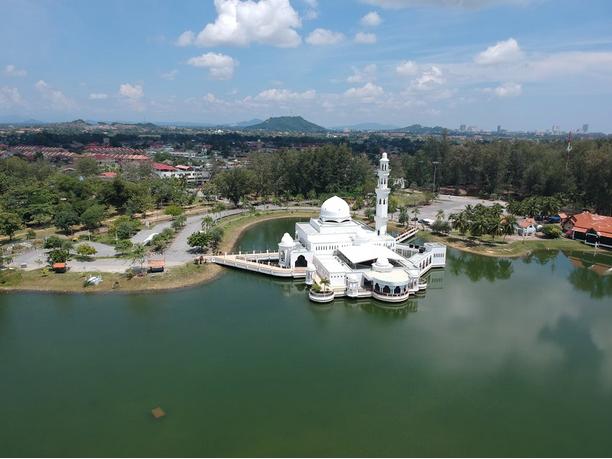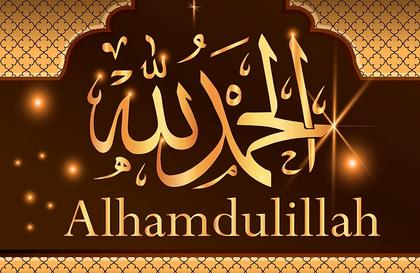ഇസ്ലാമിലേക്കുള്ള എന്റെ പാത

വിശ്വാസത്തിന്റെ യാത്ര: ഇസ്ലാമിലേക്കുള്ള എന്റെ പാത
ഞാൻ ഒരു നേവൽ ആർകിടെക്റ്റാണ്. ഈ തൊഴിൽ ജീവിതം എന്നെ അന്താരാഷ്ട്ര തലത്തിൽ അംഗീകാരവും ബഹുമാനവും നേടിക്കൊടുത്തിട്ടുണ്ട്. ലോകത്തിന്റെ വിവിധ ഭാഗങ്ങളിലേക്ക് യാത്ര ചെയ്യാനും, വിദഗ്ധരുമായി ചേർന്ന് പ്രവർത്തിക്കാനും, സമുദ്ര വ്യവസായത്തിൽ ശ്രദ്ധേയമായ പദ്ധതികളിൽ പങ്കാളിയാകാനും എന്റെ ജോലി എനിക്ക് അവസരം നൽകി. എന്നാൽ, എന്റെ ജീവിതത്തെ ഏറ്റവും ആഴത്തിൽ സ്വാധീനിക്കുകയും എന്നെ പൂർണ്ണമായും മാറ്റുകയും ചെയ്ത യാത്ര — അത് ഒരു പ്രൊഫഷണൽ യാത്രയല്ല, മറിച്ച് എന്റെ ആത്മീയ യാത്രയാണ്; ഇസ്ലാമിലേക്കുള്ള എന്റെ പരിവർത്തനം.
ഇരുപത് വർഷത്തിലധികമായി ഞാൻ ഇസ്ലാം മതം ആലിംഗനം ചെയ്തിരിക്കുന്നു. അത് ആത്മാന്വേഷണത്തിന്റെയും വ്യക്തിപരമായ വളർച്ചയുടെയും ആഴത്തിലുള്ള ആത്മപരിശോധനയുടെയും ഒരു യാത്രയായിരുന്നു. ദൈവത്തോട് കൂടുതൽ അടുത്ത് എത്തിക്കുന്നതും അശാന്തമായ ലോകത്തിൽ മനസ്സിന് സമാധാനം നൽകുന്നതുമായ ഒരു മാർഗം തേടിയാണ് ഞാൻ തുറന്ന മനസ്സോടെയും ഹൃദയത്തോടെയും ഇസ്ലാമിലേക്കു വന്നത്. ഈ തീരുമാനം ലഘുവായിരുന്നില്ല; വർഷങ്ങളായുള്ള ചിന്തയുടെയും പഠനത്തിന്റെയും ഫലമായിരുന്നു അത്. ഇസ്ലാമിൽ ഞാൻ കണ്ടെത്തിയത് ഒരു മതം മാത്രമല്ല, എന്റെ ഉള്ളറയുമായി ആഴത്തിൽ പൊരുത്തപ്പെടുന്ന ഒരു ജീവിതശൈലിയായിരുന്നു.
ഇസ്ലാമിലേക്കുള്ള ആദ്യ ആകർഷണം
എന്റെ പരിവർത്തനത്തിന് മുൻപേ തന്നെ ഞാൻ ദൈവത്തിൽ വിശ്വസിച്ചിരുന്ന ഒരാളായിരുന്നു. ഈ സൃഷ്ടിജഗത്തിൽ ഒരു പരമശക്തിയുടെ സാന്നിധ്യമുണ്ടെന്ന് ഞാൻ തിരിച്ചറിഞ്ഞിരുന്നു. എന്നാൽ, എന്റെ ആത്മീയ ആഗ്രഹങ്ങളെ പൂർണ്ണമായി തൃപ്തിപ്പെടുത്തുന്ന ഒരു മതം ഞാൻ ഇതുവരെ കണ്ടെത്തിയിരുന്നില്ല. വിവിധ തത്ത്വചിന്തകളും വിശ്വാസങ്ങളും ആചാരങ്ങളും ഞാൻ അന്വേഷിച്ചു, എന്നാൽ എവിടെയോ ഒരു കുറവ് എപ്പോഴും ഉണ്ടായിരുന്നു. ഇസ്ലാം എന്നെ സമീപിച്ചപ്പോൾ ആ ശൂന്യത നിറഞ്ഞു.
ഇസ്ലാം എനിക്ക് ഇത്രയധികം ആകർഷകമായതിന് പല കാരണങ്ങളുണ്ട്. അവയിൽ ചില പ്രധാന ഘടകങ്ങളാണ് ഞാൻ ഇവിടെ പറയുന്നത് — അവയായിരുന്നു എന്നെ ഇസ്ലാം സ്വീകരിക്കാൻ നയിച്ചത്.
1. ഏകദൈവ വിശ്വാസം (തൗഹീദ്)
ഇസ്ലാമിലെ ഏറ്റവും ആഴമുള്ള ആശയങ്ങളിൽ ഒന്നാണ് തൗഹീദ് — ദൈവത്തിന്റെ പരിപൂർണ്ണ ഏകത്വം. ദൈവം ഏകനും വിഭജിക്കപ്പെടാത്തവനും സർവ്വാതീതനുമാണെന്ന് ഇസ്ലാം പഠിപ്പിക്കുന്നു. ഈ ആശയം എനിക്ക് ആഴത്തിലുള്ള ആശ്വാസം നൽകി. സർവ്വവിശ്വത്തിന്റെ സ്രഷ്ടാവും സംരക്ഷകനും അധിപനുമായ ഒരേയൊരു ദൈവം മാത്രമേ ഉണ്ടാകൂ എന്ന വിശ്വാസം, ജീവിതത്തിന് വ്യക്തമായ ലക്ഷ്യവും ദിശയും നൽകുന്നു. അനിശ്ചിതത്വങ്ങൾ നിറഞ്ഞ ലോകത്തിൽ വ്യക്തത നൽകുന്ന ഒരു വിശ്വാസമാണത്.
ഖുര്ആൻ ദൈവത്തിന്റെ ഏകത്വത്തെ മനോഹരമായി ഉച്ചരിക്കുന്നു:
“അല്ലാഹു ഏകനാണ്, അവൻ നിത്യനും സമ്പൂർണ്ണനുമാണ്.”
(ഖുര്ആൻ 112:1)
ലളിതമെങ്കിലും അതീവ ആഴമുള്ള ഈ വിശ്വാസം എന്റെ ഹൃദയത്തെ ആഴത്തിൽ സ്പർശിച്ചു. ലോകത്തെ മനസ്സിലാക്കാനുള്ള ഒരു ഉറച്ച അടിത്തറ അത് എനിക്ക് നൽകി.
2. ഖുര്ആൻ: ജീവിതത്തിനുള്ള മാർഗദർശി
ഇസ്ലാമിലേക്കുള്ള മറ്റൊരു ശക്തമായ ആകർഷണം ഖുര്ആനായിരുന്നു — ഇസ്ലാമിന്റെ പരിശുദ്ധ ഗ്രന്ഥം. ഖുര്ആൻ ആത്മീയ മാർഗദർശി മാത്രമല്ല; നീതിയുള്ളതും അർത്ഥവത്തുമായ ഒരു ജീവിതം എങ്ങനെ നയിക്കണമെന്ന് പഠിപ്പിക്കുന്ന സമഗ്രമായ മാർഗരേഖയാണ്. ആത്മീയത മുതൽ വ്യക്തിപരമായ പെരുമാറ്റം, സാമൂഹ്യനീതി, സാമ്പത്തിക ഇടപാടുകൾ, പരിസ്ഥിതി സംരക്ഷണം വരെ മനുഷ്യജീവിതത്തിന്റെ എല്ലാ മേഖലകളെയും ഖുര്ആൻ സ്പർശിക്കുന്നു.
ഖുര്ആന്റെ ഏറ്റവും വലിയ പ്രത്യേകത അതിന്റെ കാലാതീതതയാണ്. 1400 വർഷങ്ങൾക്ക് മുമ്പ് നബി മുഹമ്മദ് (സ)ക്ക് അവതരിക്കപ്പെട്ട ഈ ഗ്രന്ഥം ഇന്നും അത്രത്തോളം പ്രസക്തമാണ്. നീതിയും കരുണയും ദയയും പ്രാധാന്യമാക്കുന്ന ഖുര്ആൻ വ്യക്തിഗതവും സാമൂഹ്യവുമായ ജീവിതത്തിന് മാർഗനിർദ്ദേശം നൽകുന്നു.
“നിശ്ചയമായും ഈ ഖുര്ആൻ ഏറ്റവും നേരായ മാർഗത്തിലേക്കാണ് വഴികാട്ടുന്നത്.”
(ഖുര്ആൻ 17:9)
ജീവിതത്തിന്റെ ദുഷ്കരമായ ചോദ്യങ്ങൾക്ക് ഖുര്ആൻ ഉത്തരങ്ങൾ നൽകുന്നു — ദുരിതങ്ങൾക്ക് അർത്ഥം നൽകുകയും, ജീവിതലക്ഷ്യം വ്യക്തമാക്കുകയും, മരണാനന്തര ജീവിതത്തെക്കുറിച്ചുള്ള പ്രത്യാശ നൽകുകയും ചെയ്യുന്നു.
3. നബി മുഹമ്മദ് (സ)യുടെ ജീവിതം
നബി മുഹമ്മദ് (സ)യുടെ ജീവിതത്തെക്കുറിച്ച് ഞാൻ കൂടുതലായി അറിഞ്ഞപ്പോൾ, അത്രയധികം ഞാൻ പ്രചോദിതനായി. അദ്ദേഹത്തിന്റെ സ്വഭാവഗുണങ്ങൾ — ക്ഷമ, ജ്ഞാനം, സഹനശീലം, അനീതിക്കെതിരെയുള്ള ഉറച്ച നിലപാട് — എല്ലാം തന്നെ എന്നെ ആഴത്തിൽ സ്വാധീനിച്ചു. അദ്ദേഹം ഒരു മതനേതാവ് മാത്രമല്ല; ഒരു പൂർണ്ണ മനുഷ്യ മാതൃകയായിരുന്നു.
ഖുര്ആൻ അദ്ദേഹത്തെക്കുറിച്ച് പറയുന്നു:
“നിശ്ചയമായും നിങ്ങൾ മഹത്തായ സ്വഭാവഗുണങ്ങളുടെ ഉടമയാണ്.”
(ഖുര്ആൻ 68:4)
അദ്ദേഹത്തിന്റെ മാനുഷികതയാണ് എന്നെ ഏറ്റവും കൂടുതൽ ആകർഷിച്ചത്. കുടുംബത്തോടും സുഹൃത്തുകളോടും എതിരാളികളോടും പോലും അദ്ദേഹം പുലർത്തിയ സമീപനം മനുഷ്യസ്വഭാവത്തെക്കുറിച്ചുള്ള ആഴമുള്ള ബോധം പ്രകടിപ്പിക്കുന്നു.
4. ഇസ്ലാമിന്റെ ഐക്യവും സർവ്വലോകീയതയും
ഇസ്ലാമിന്റെ ഏറ്റവും മനോഹരമായ വശങ്ങളിൽ ഒന്നാണ് അതിന്റെ ഐക്യബോധവും സമത്വവുമാണ്. വംശം, ഭാഷ, ദേശം, സാമൂഹികപദവി — ഒന്നും ഇസ്ലാമിൽ മേന്മയുടെ മാനദണ്ഡമല്ല. മുസ്ലിം സമൂഹം (ഉമ്മ) ഒരു ആഗോള കുടുംബമാണ്.
“മനുഷ്യരേ, നാം നിങ്ങളെ ആണും പെണ്ണുമായി സൃഷ്ടിച്ചു; നിങ്ങൾ തമ്മിൽ പരിചയപ്പെടാൻ ജനങ്ങളും ഗോത്രങ്ങളുമായി മാറ്റി.”
(ഖുര്ആൻ 49:13)
വിഭജനങ്ങൾ നിറഞ്ഞ ലോകം കണ്ട ഒരാളായി, ഈ സന്ദേശം എന്റെ ഹൃദയത്തിൽ ആഴമായി പതിഞ്ഞു.
5. ഇസ്ലാമിന്റെ പ്രായോഗികതയും സന്തുലിതത്വവും
ആത്മീയതയും ഭൗതികജീവിതവും തമ്മിലുള്ള സമതുലിതത്വമാണ് ഇസ്ലാമിൽ ഞാൻ കണ്ടെത്തിയ സമാധാനത്തിന്റെ ഒരു പ്രധാന കാരണം. ലോകത്തിൽ നിന്ന് വിട്ടുനിൽക്കാൻ ഇസ്ലാം ആവശ്യപ്പെടുന്നില്ല; മറിച്ച് ലോകത്തിനുള്ളിൽ തന്നെ നീതിയുള്ള ജീവിതം നയിക്കാൻ മാർഗനിർദ്ദേശം നൽകുന്നു.
സകാത്ത് സമ്പത്ത് ശുദ്ധീകരിക്കുന്നതും സമൂഹബോധം വളർത്തുന്നതുമാണ്. നമസ്കാരം ദിവസവും പലതവണ ദൈവത്തോട് ബന്ധപ്പെടാനുള്ള ഓർമ്മപ്പെടുത്തലാണ്. റമദാനിലെ നോമ്പ് ആത്മനിയന്ത്രണവും കരുണയും നന്ദിയും പഠിപ്പിക്കുന്നു.
വെല്ലുവിളികളും എതിര്പ്പുകളും
ഇസ്ലാം സ്വീകരിച്ചത് എളുപ്പമായിരുന്നില്ല. വ്യക്തിപരമായ ബന്ധങ്ങളിലും സമൂഹത്തിലും എനിക്ക് ശക്തമായ എതിര്പ്പുകൾ നേരിടേണ്ടിവന്നു. തെറ്റിദ്ധാരണകളും ഒറ്റപ്പെടുത്തലുകളും അപമാനങ്ങളും പോലും അനുഭവിക്കേണ്ടി വന്നു. തൊഴിൽജീവിതത്തിലും വിവേചനം നേരിട്ടു.
എന്നാൽ, ഈ എല്ലാ പരീക്ഷണങ്ങളിലും എന്റെ വിശ്വാസമാണ് എന്നെ ശക്തനാക്കിയത്. ക്ഷമയും ദൈവത്തിൽ ഉള്ള വിശ്വാസവും എന്നെ മുന്നോട്ട് നയിച്ചു.
വിശ്വാസത്തിന്റെ സന്തോഷം
ഇന്ന് ഞാൻ ആത്മവിശ്വാസത്തോടെ പറയാം — ഇസ്ലാം എന്റെ ജീവിതത്തിന് അപാരമായ സന്തോഷവും സമാധാനവും നൽകിയിട്ടുണ്ട്. അത് എന്റെ മൂല്യങ്ങളെയും മുൻഗണനകളെയും പൂർണ്ണമായി മാറ്റി. എനിക്ക് വിനയം, ദാനം, അറിവ് തേടൽ എന്നിവ പഠിപ്പിച്ചു. ഏറ്റവും പ്രധാനമായി, ദൈവത്തോട് കൂടുതൽ അടുത്ത് എത്തിച്ചു.
ഉപസംഹാരം
ഇന്ന് തിരിഞ്ഞുനോക്കുമ്പോൾ, എന്റെ ജീവിതത്തിലെ ഏറ്റവും മികച്ച തീരുമാനങ്ങളിലൊന്നായിരുന്നു ഇസ്ലാം സ്വീകരിച്ചത് എന്ന് ഞാൻ ഉറപ്പോടെ പറയുന്നു. പരീക്ഷണങ്ങൾ എളുപ്പമായിരുന്നില്ല, പക്ഷേ അവ എല്ലാം എന്നെ കൂടുതൽ ശക്തനാക്കി.
ഇസ്ലാം എനിക്ക് ലക്ഷ്യവും ദിശയും അചഞ്ചലമായ മനസമാധാനവും നൽകി. ലോകത്തിന്റെ ഒരു സാഹചര്യത്തിനും കുലുക്കാനാവാത്ത ഒരു ആത്മീയ സ്ഥിരതയാണ് അത് എനിക്ക് നൽകിയിരിക്കുന്നത്.
സമാനമായ പോരാട്ടങ്ങൾ നേരിടുന്നവർക്കുള്ള എന്റെ സന്ദേശം ഇതാണ്:
അല്ലാഹുവിന്റെ പദ്ധതിയിൽ വിശ്വസിക്കുക. ഓരോ പരീക്ഷണവും വളർച്ചയ്ക്കുള്ള അവസരമാണ്. ക്ഷമയും പ്രാർത്ഥനയും അറിവും കൈവിടരുത്.
ഖുര്ആന്റെ മാർഗനിർദ്ദേശത്തിനും, നബി മുഹമ്മദ് (സ)യുടെ മാതൃകയ്ക്കും, മുസ്ലിം സമൂഹത്തിന്റെ സ്നേഹപൂർണ്ണമായ പിന്തുണയ്ക്കും ഞാൻ എക്കാലവും കടപ്പെട്ടിരിക്കും.
ഈ യാത്ര ഞാൻ തുടരുമ്പോൾ, നന്ദിയും പ്രത്യാശയും നിറഞ്ഞ ഹൃദയത്തോടെയാണ് ഞാൻ മുന്നോട്ട് പോകുന്നത്. മുന്നിൽ എന്തുതരത്തിലുള്ള വെല്ലുവിളികളുണ്ടായാലും, എന്റെ വിശ്വാസം എനിക്ക് ശക്തിയും സഹനശേഷിയും മനസ്സിന്റെ സമാധാനവും നൽകിക്കൊണ്ടേയിരിക്കും എന്ന ഉറച്ച ആത്മവിശ്വാസം എനിക്ക് ഉണ്ട്. ഒടുവിൽ, ഇസ്ലാം എനിക്ക് നൽകിയ സമാധാനമാണ് — എന്നോടുള്ള സമാധാനം, എന്റെ സ്രഷ്ടാവിനോടുള്ള സമാധാനം, ലോകത്തോടുള്ള സമാധാനം — അതാണ് ഞാൻ ഏറ്റവും കൂടുതൽ സ്നേഹത്തോടെയും കൃതജ്ഞതയോടെയും ഹൃദയത്തിൽ സൂക്ഷിക്കുന്നത്.
Please continue reading https://drshaji.com/contact-me
